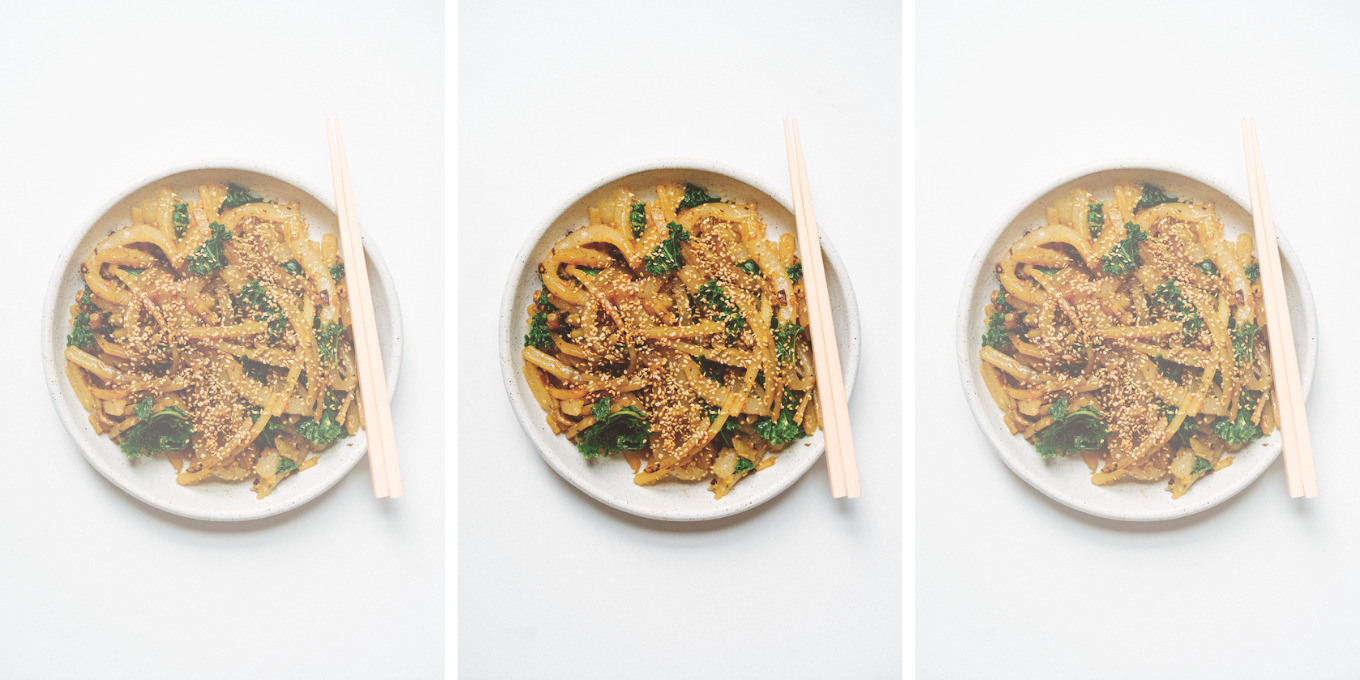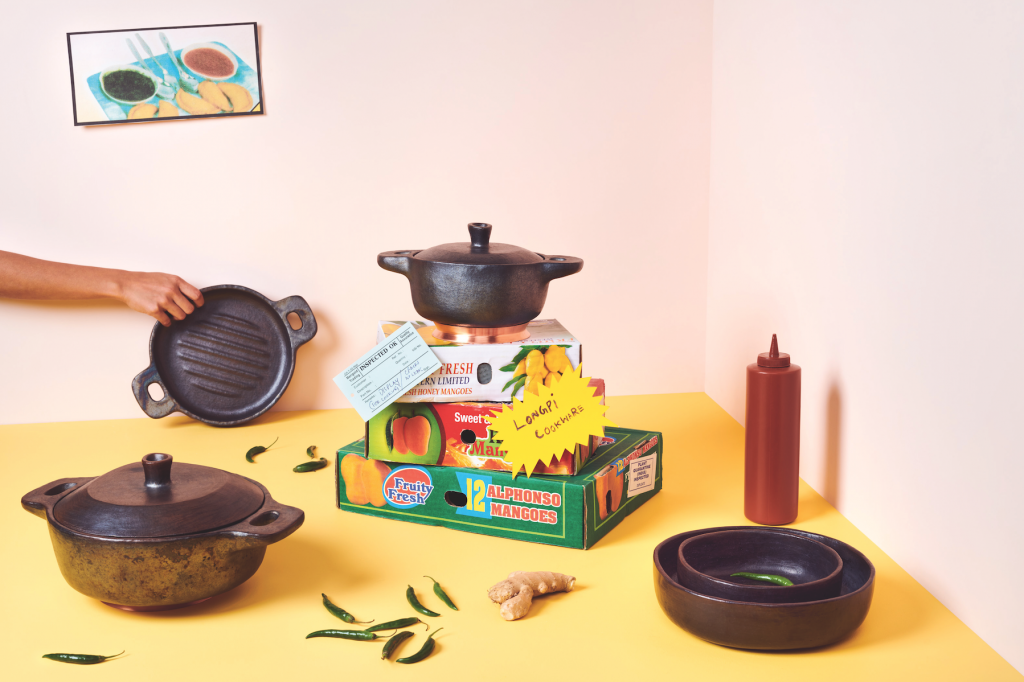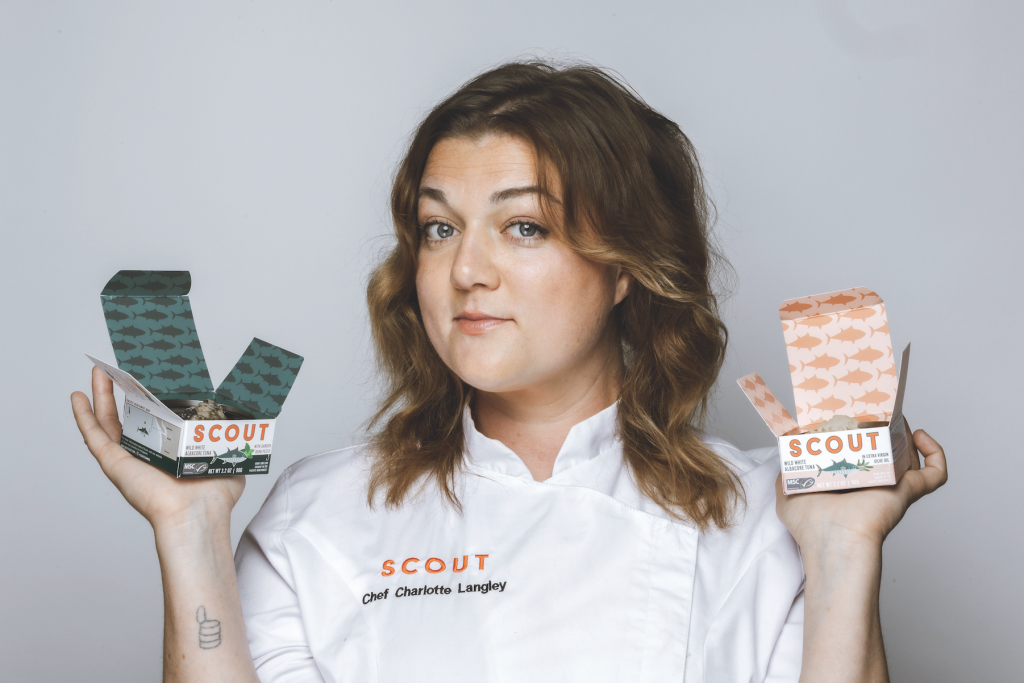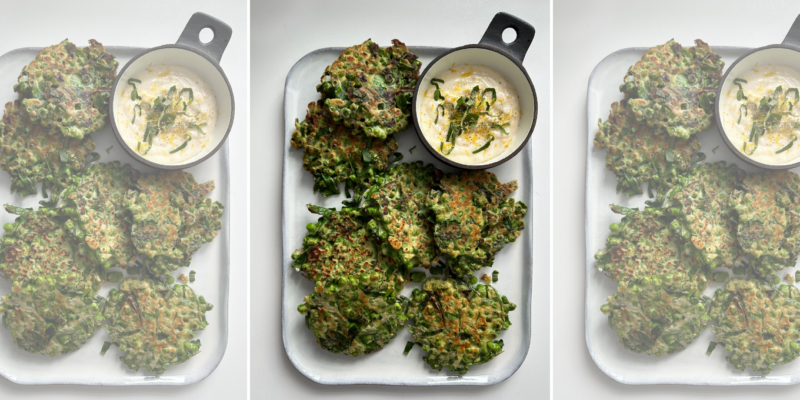Food & Drink
8 Culinary Trends We Can’t Wait to Sink Our Teeth Into
We're in a food mood.
by : Aman Dosanj- Sep 14th, 2023

HETTY LUI MCKINNON (POTATO NOODLES)
Over the past couple of years, food lovers across the country have seen everything from heartbreaking restaurant and business closures to magical new openings and grocery-store price-fixing controversies to the rising cost of pretty much everything. But in moments like these, time and time again, the food world adapts in the most phenomenal ways. This year, we’ve seen the tinned-fish revolution continue, a rise in eco-conscious food production and purchasing, chefs who are bringing a dash of childhood nostalgia to their menus and food-content creators who are searching for deeper engagement. While some trends burst onto the scene one day and disappear the next, here are a few we hope stick around.
RESHAPING CANADA’S CULINARY DNA
Historically, discussions about Canada’s culinary identity have focused on a narrow set of voices, but our food scene is way more delicious when everyone is welcome at the table. Whether it’s heartwarming modern Persian eats at Michelin-recommended Delara in Vancouver, thought-provoking cultural explorations at The Soy Luck Club popups by Eva Chin in Toronto, feel-good Haitian vibes at Montreal’s Kamúy, soul-enriching storytelling through food by Métis chef Jenni Lessard at Saskatoon’s Wanuskewin Heritage Park or a gastronomic adventure at buzzy new restaurant Portage in Newfoundland, memory-making dining experiences create an appetite for a fuller understanding of Canada—and the world.
BEATING THE ALGORITHM
Over the years, exhausting algorithms have made browsing on social media a frustrating experience—for creators and followers alike. Many creators, from mega chef José Andrés to New York Times recipe developer Sohla El-Waylly, are now flocking to Substack (and other newsletter platforms) to bypass the unrealistic demands of apps like Instagram. “Social media has shortened attention spans, and much of the content is questionable,” says Nik Sharma, bestselling author of The Flavor Equation. Since launching The Flavor Files on Substack in late 2022, his food-science-inspired newsletter has surpassed 23,000 subscribers. “I’ve got dedicated followers who are willing to pay me for my writing because they see value in it. I love that over a very short period, I’ve been able to build a community and directly talk with my readers and help them out.”
OODLES OF NOODLES
Isn’t it weird how making fresh pasta seems quite doable, yet whipping up a batch of noodles for a stir-fry rarely seems like an option? In bestselling author Hetty Lui McKinnon’s newest cookbook, Tenderheart: A Cookbook About Vegetables and Unbreakable Family Bonds, she removes the intimidation factor by introducing readers to the wonders of loh shi fun, or potato-starch noodles. “Unlike wheat-based noodles, noodles made of starch tend to be bouncy, chewy and almost translucent,” explains McKinnon. “They are incredibly robust and can be used in stir-fried noodle dishes or soups. Best of all, they are easy to make at home, requiring only potato starch, oil and water.” Whether we’re adding hand-torn flakes of Korean sujebi to a simmering soup or making Serena Dai’s Chinese scissor-snipped jian dao mian, our at-home noodle flex now goes beyond the usual soba, udon and vermicelli.
DINNER-PARTY REVIVAL
After being apart for far too long, everyone is overjoyed that dinner parties are officially back! But this time, they’re less showy and more fun. With so much dreamy cookware on offer right now, pots and pans can pull double duty as serveware (which means fewer dishes to wash too). Some of our more sustainable faves include California-based Kana’s turmeric-hued Milo Dutch oven (super functional without a hefty price tag); Tiipoi’s handcrafted Longpi clay Karipot, which locks in flavours like no other vessel (trust us—it makes everything taste better); the forever sold-out Our Place Always Pan 2.0 for the toxic-free non-stick surface alone; bestselling cookbook author Molly Baz’s new Crate & Barrel line; and anything from the crayola-coloured cookware collection by Canadian celebrity chef Chuck Hughes.
 NISHANT SHUKLA (TIIPOI)
NISHANT SHUKLA (TIIPOI)BEAN THERE, (HAVEN’T) DONE THAT
“I’m on a ‘grow your own protein’ campaign,” says Food and the City author Jennifer Cockrall, who is currently working on a book—her fourth—about seed saving and seed banks around the world. “As part of the Okanagan Seed Savers, we’re running seed trials to make people aware that beautiful beans are a climate-friendly, ultra-inexpensive, organic and incredibly delicious way to bump up your plant protein.” Public libraries across the country have also morphed into community seed libraries offering free garden seeds that you check out using your library card; the idea is to keep the seed-saving circle of life going by donating some back after the growing cycle is completed. “It’s a bit messy and chaotic because it’s new and people are learning the skills of seed saving, but keeping community and regionally adapted seeds circulating is a radically important idea for food security and climate-change adaptability.”
WONDER BREAD—BUT MAKE IT
INTERNATIONAL
Whether it’s a Bombay chilli-cheese toastie (layered with sliced tomatoes, boiled potatoes and bell peppers, smothered with spicy green chutney and tangy chaat masala and then topped with gooey cheese) or a Japanese-milk-bread sando with crisp, juicy pork, egg or even fruit, the popularity of global sandwiches is exploding across TikTok and other social media platforms—and with good reason.
COMPOST FASTER
With the climate crisis worsening by the day, more people are looking for ways to be socially responsible with their food scraps. At the press of a button, countertop composters like the Lomi model turn household food waste into nutrient-rich soil in roughly four hours (instead of the usual weeks or even years that traditional composting takes). While demand for these quick-fix appliances is growing steadily, the cost of this particular convenience is a hefty $650.
 SCOUT CANNING (C. LANGLEY)
SCOUT CANNING (C. LANGLEY)THE PRESENT IS FEMALE
While women have been changing the restaurant game for years, they’ve received little recognition for it—but that’s no longer the case. With a focus on the well-being of her staff, world-renowned chef Manu Buffara is setting a new standard by implementing a three-day workweek at her cozy 16-covers-a-night restaurant in Curitiba, Brazil—and she is about to open a second spot, in New York, that takes the same approach. Culinary pioneer Debora Fadul’s Diacá, in Guatemala City, received the Sustainable Restaurant award at Latin America’s 50 Best Restaurants event as well as a Hidden Gem nod from La Liste (which compiles the world’s best restaurants and pastry shops according to several hundred publications, guides and cross-referenced reviews). Closer to home, PEI-born chef Charlotte Langley continues to make waves across Canada and the U.S. with her ocean-friendly-tinned-fish company, Scout, while Nicole Gomes of Calgary’s Cluck N Cleaver repped the country hard on Top Chef: World All-Stars. Bridging cultures through food, Snitsmana, who is more commonly known as Inez Cook and is a member of B.C.’s Nuxalk Nation, founded Vancouver’s only Indigenous restaurant, Salmon n’ Bannock, in 2010. This year, she opened a second location, inside the Vancouver International Airport. “Both of my places are good examples of economic ‘reconciliaction,’” says Snitsmana. “The [fact that mine is the] first Indigenous restaurant at any airport in North America speaks volumes.”
Read more:
10 Ways to Cook Eggs
10 Healthy Snack Recipes
15 Delicious Recipes With Maple Syrup
Newsletter
Join our mailing list for the latest and biggest in fashion trends, beauty, culture and celebrity.
Read Next

Culture
These Pea, Mint and Spinach Fritters Are the Ultimate Spring Snack
Served with a little creamy yogourt sauce on the side, these fritters are an ideal meal, appetizer or shareable snack.
by : Margaux Verdier- May 7th, 2024

Here’s What to Pack For Your Next Vacation—So You Don't Have to Stress About It
10 things you need to travel well-prepared, and in style.
by : Lauren Knowles- May 7th, 2024

Life and Love
Have You Tried These Goodies for Sexual Wellness Yet?
Consider this your sign that it’s time to improve your sexual well-being—a key part of your overall health.
by : ELLE Canada- May 7th, 2024




